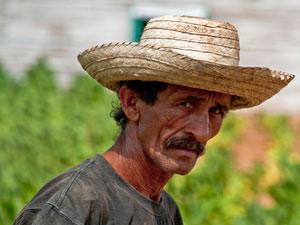Cuba cuts a half million jobs
(Image by Flickr user Heart & Soul (cc:by-nc-nd))
This story was originally reported by PRI’s The World. For more, listen to the audio above.
When some 500,000 Cubans lose their government jobs in the coming months, the Cuban government has some advice. According to a document obtained by the Associated Press, the government suggests that people raise rabbits, paint buildings, make bricks and collect garbage, among other jobs.
Unfortunately, “that’s a lot of people to be left without employment,” Andy Gomez, a senior fellow for Cuban studies at the University of Miami, told PRI’s The World. On one hand, the layoffs could encourage more people to enter the private sector, which could be a good thing. On the other hand, Gomez points out, “Cuba’s economy today is the worst that it’s ever been, even after the Special Period” — after the Soviet Union collapsed.
Some of the laid off workers will hopefully be able to start businesses, in the short term. But over the long term, according to Gomez, what’s really needed is foreign investment. “And there is no structure in place that will encourage a foreign investor or any country to put money into Cuba because there is no security for it,” according to Gomez. “So I think you almost have to start from scratch to a great extent.”
The country does have friends around the region, including Venezuela. But Gomez sees little chance that the United States will lift its trade embargo on Cuba any time soon.
One looming problem in Cuba is the country’s mounting debt. Unless foreign countries forgive Cuba’s looming debt, these layoffs may not be able to stem the economic problems. In fact, according to Gomez, without debt forgiveness, the country is “not going to be able to survive no matter what economic reforms they put in place.”
The economic crisis in the United States is also hurting Cuba. Gomez says that it’s curbed the amount of money that relatives from the United States are sending to their Cuban family members.
Once the money gets into the country, there’s not much to buy anyway. And that’s creating inflation. Because of food shortages in the country, Gomez says that a can of tuna can cost almost $6.25. And an egg can go for $1.50.
“I am really hoping that these Cubans that are going to lose their government jobs, that they’re going to be able to make ends meet,” Gomez told The World. “But again, I just don’t see the infrastructure in place, provided by the government for foreign investment to come in at this time.”
PRI’s “The World” is a one-hour, weekday radio news magazine offering a mix of news, features, interviews, and music from around the globe. “The World” is a co-production of the BBC World Service, PRI and WGBH Boston. More “The World.”
